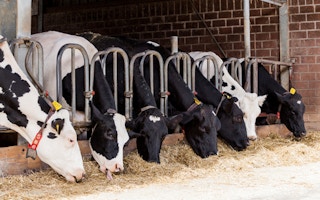British and international scientists have proposed eight strategies to make cattle and sheep-farming more sustainable, to make both the animals and people who depend on them healthier, and to reduce the strain on the planet.
Mark Eisler, a veterinary scientist at the University of Bristol and colleagues argue in the journal Nature that cattle, sheep and some other livestock eat the grass and crop residues that people cannot digest.
In so doing farm animals can offer both efficient use of resources and high quality protein for those who might need it most.
Dependence on livestock
Almost a billion of the world’s poorest people depend on livestock for their livelihood, but the scientists are not arguing that the world should eat more meat: rather that there should be more careful use of livestock as a resource.
“
Annual meat consumption in India is just 3.2 kilograms per head, compared with 125kg per person in the United States in 2007, much of it from heavily processed foods, such as burgers, sausages and ready meals
They make their argument at a time when obesity has emerged as a global problem, and at a time when reports once again link a diet high in meat and animal products with cancer and diabetes.
“Annual meat consumption in India is just 3.2 kilograms per head, compared with 125kg per person in the United States in 2007, much of it from heavily processed foods, such as burgers, sausages and ready meals,” they write. “The focus should be on eating less, better quality meat.”
For the world’s poorest, however, there are clear nutritional advantages to high quality animal foods rich in protein. The challenge is to manage livestock in the most effective way.
Changing diet
They argue that farm animals now consume a third or more of the world’s cereal grain, which would be better used to feed people directly. Other scientists have lately argued that a higher quality diet for animals would lead to lower emissions of methane.
Instead, the Bristol-led team wants to see ruminants or cud-chewing animals fed food that humans cannot eat. Rather than try to improve yield in the developing world by exporting cattle that can deliver 30 litres of milk a day – yields that don’t survive a change in climate and environment – farmers and scientists should try to improve local livestock already adapted to local conditions.
They also argue that animal health is important. Sick animals can make people sick too. A total of 13 diseases transferred between animals and humans are linked to 2.2 million deaths a year and 2.4 billion cases of illness.
Professor Eisler and his fellow authors also want to see animal productivity boosted by the right food supplements to encourage better growth, more efficient digestion and lower levels of greenhouse gas emissions.
Less red meat
They believe in a balanced diet with an average of no more than 300 grams of red meat per person per week; they want to see better management of animals and grazing land to conserve biodiversity and increase carbon capture by plants and soil, and they want to see a global network of research farms.
“The quest for intensification in livestock farming has thundered ahead with little regard for sustainability and overall efficiency, the net amount of food produced in relation to inputs such as land and water,” said Prof Eisler.
“With animal protein set to remain part of the food supply, we must pursue sustainable intensifications and figure out how to keep livestock in ways that work best for individuals, communities and the planet.”

















